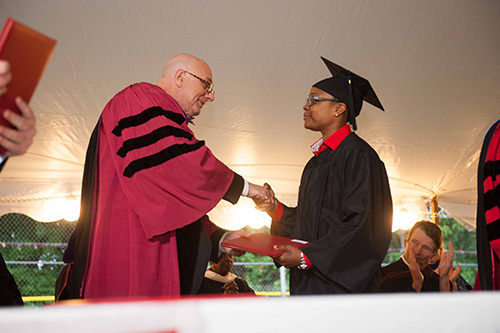
Max Kenner believes that if you were to show the success rates of the graduates from the Bard Prison Initiative to experts in the social sciences, they would tell you the results are “impossible”. The story of the Bard Prison Initiative (ΒΡΙ), founded by Kenner in 1999 και υποστηρίζεται από Alma Mater του, Bard College, έχει γίνει θρυλική. Δεδομένου ότι το μεγαλύτερο πρόγραμμα του είδους του στις Ηνωμένες Πολιτείες σήμερα, ΒΡΙ εγγεγραμμένος ή θα εγγραφεί περίπου 300 φυλακισμένος άνδρες και γυναίκες σε ένα πλήρες φάσμα των επιστημονικών κλάδων, και προσφέρει πάνω από 60 μαθήματα κάθε εξάμηνο. Kenner’s recent awards have included The Chronicle of Philanthropy’s 40 Κάτω από 40, Richard Cornuelle Award for Social Entrepreneurship, the Smithsonian American Ingenuity Award in Education, and most recently, a Tribeca Disruptive Innovation Award (TDIA). The goal of the TDIA is to shine a light on innovations which are helping to solve the world’s most intractable problems. Max joins us in Η Σφαιρική Αναζήτηση για Εκπαίδευση για να μιλήσουμε για το πώς και γιατί οι απόφοιτοι ΒΡΙ επιτυχία στην τάξη και στον πραγματικό κόσμο, καθώς και το όραμα της οργάνωσής του για αυτό το πρωτοποριακό πρόγραμμα με ανυπομονησία.
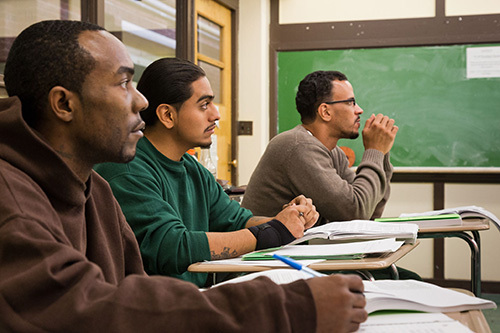
Max, within five years of their release, περισσότερο από 3 έξω από 4 ex-inmates are arrested again. Out of the 300 students who have graduated Bard, και μόνο 4 percent have returned to prison. Why are your graduates more likely to succeed?
We resist any one explanation of why that happens. Επίσης, it’s important to point out we work very hard to press back against the inclination that is shared by leaders in philanthropy, κυβέρνηση, and education, that the best metric for measuring the success of our students and alumni is recidivism rates because it frames our work overwhelmingly in the context of criminal justice in a way that reduces our students to simply the people that have been incarcerated for a criminal offense.
We measure success of our students in many more ways than whether they return to prison. We treat our students exactly as we would treat any conventional student on the campus of a superb liberal arts college. We don’t view our students as incarcerated students that need ‘correction’. We approach them with a sense that the whole intellectual world is at their disposal as it would be for any student or any person. We work very hard not to limit the way we approach them or the way they pursue a new sense of curiosity and ownership about the arts, βιβλία, ιδέες, επιστήμη, μαθηματικά, or a foreign language. It’s about their individual pursuits and not about their involvement with criminal justice. They are simply students who should be treated with the same sense of individuality, σκοπός, and curiosity as any students anywhere. So a better metric than recidivism rates might be something like academic success or other things that are much harder to measure, like how fulfilled a person is over the course of their life, how they engage with questions relevant to their academic study later in life, or the way they speak to their children about their own school work.
How large is the well of untapped intellectual potential in prisons today?
That’s a very fair question and the truth is that we don’t know. All we know is that as our project has grown across the country, we continue to find more untapped talent, rather than less.
The population that makes up our student body does not show any predictive mechanism for seeing who is more or less likely to succeed in college study. Our students go from mathematical illiteracy to first, or second, or third term calculus and become math majors. Students fall in love with continental philosophy and learn German to read Hegel in the original. These students do not necessarily come from backgrounds where their parents had a superb education. Όντως, they often dropped out of school early. Nothing about their criminal history, where they grew up, their institutional record, or their proximity to release are indicators of whether or not the student will be successful in school.
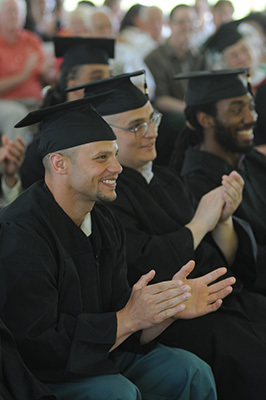
The job marketplace is currently very competitive for all young people. Are employers able to remove the stigma associated with incarcerated individuals? Do they believe your graduates have the skills to contribute to their communities?
Amongst our alumni, there are students who are thriving at graduate schools and receiving degrees in social work, public health, PhDs in academic disciplines, urban planning, και τα λοιπα. They study at schools across the CUNY system, Κολούμπια, NYU, Yale, και τα λοιπα. We have students who are vice-presidents in the management of billion dollar international companies. But typically, our student body goes back to the community from which they came–generally the most isolated, underserved areas in New York–working with populations that needs them the most. They serve people with HIV/AIDS, who are homeless, who are returning from prison, και–most of all–youth at risk. Our students are an extraordinary asset to these communities and are recognized as such by employers within them. They have an unusual combination of life-experience and academic training. They are of extraordinary value to people who are hiring in human service agencies.
What do you envision for the future of education in prisons? Where is the potential for scaling up this initiative? What are the major roadblocks?
We have the Consortium for Liberal Arts in Prison which has worked to establish different programs which are run by other superb colleges and universities across the country. We are currently in twelve states. The first project we helped establish was in Connecticut at Wesleyan University. We have worked with Grinnell College in Iowa, Goucher College in Maryland, Holy Cross College and the University of Notre Dame in Indiana, Washington University in St. Louis, and several colleges in Washington state. One of the reasons we decided not to insert the Bard program into states we don’t know is that we feel strongly this work is most successful at a genuinely human scale. All the pressure from philanthropy, κυβέρνηση, and money say ‘go to scale.’ We think our students benefit in the way that they do from an academic education for precisely the opposite reason. We’re interested in getting elite colleges and universities to reimagine the way they do their jobs, to reimagine the way that they relate to the communities around them, reimagine the way they can interfere with the worst social problems we face collectively as a country. In the academy–ηγέτες, college presidents, trustees, the elite professoriate–there is a terrible crisis of confidence regarding the relevance of what we do in the humanities and especially in the arts. If we’re going to be successful in facing any of the great challenges we are presented with as a country, we must have confidence in one another, and deliver rigorous and ambitious education to all pockets of society where we’re told by elites that failure is the most likely outcome. The success of BPI students is evidence that impossibly good results are achievable if we can treat students with dignity.
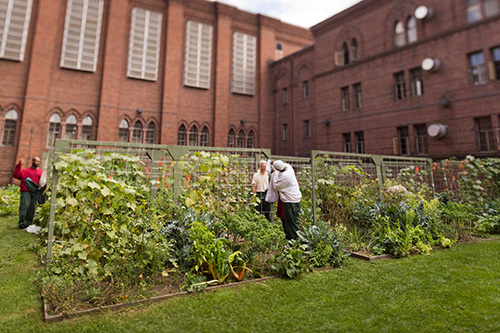
Do you think that the education of incarcerated individuals has the potential to fundamentally change the institution of higher education in America?
The radical success of incarcerated Americans in college education is symbolic. It should move leaders in education to rethink the way we look at college admission and rethink the way we present the things we say we value: εμπλοκή των πολιτών, historical knowledge, mathematical literacy, honoring the arts, access to science. We need to revitalize the way we share these things with the public at large.
What does being a Tribeca Disruptive Innovation Awards honoree mean to you?
It’s an honor for the institution to be recognized by Tribeca and for the work begin to be recognized in this way. There is one thing I would like to emphasize with respect to being ‘disruptive’: if you were to present the success of our students to experts in the social sciences they would argue these results are impossible. But these students do well; and they do it year in and year out.
The impossible success of incarcerated students should disrupt the way we have habituated ourselves to look at other problems. We’re going to have to address great crises globally in the 21st century–catastrophic climate change, mass extinction, διάδοση των πυρηνικών όπλων, income inequality. Our students’ impossible success came from addressing problems from a different perspective and I hope it inspires something similar in all different realms.
(All photos are courtesy of BPI and CMRubinWorld)
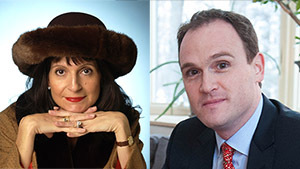
Έλα μαζί μου και παγκοσμίως γνωστή ηγέτες σκέψης συμπεριλαμβανομένου του Sir Michael Barber (Ηνωμένο Βασίλειο), Ο Δρ. Michael Block (ΗΠΑ), Ο Δρ. Leon Botstein (ΗΠΑ), Καθηγητής Clay Christensen (ΗΠΑ), Ο Δρ. Linda Ντάρλινγκ-Hammond (ΗΠΑ), Ο Δρ. MadhavChavan (Ινδία), Ο καθηγητής Michael Fullan (Καναδάς), Ο καθηγητής Howard Gardner (ΗΠΑ), Ο καθηγητής Andy Hargreaves (ΗΠΑ), Ο καθηγητής Yvonne Hellman (Η Ολλανδία), Ο καθηγητής Kristin Helstad (Νορβηγία), Jean Hendrickson (ΗΠΑ), Καθηγητής Rose Hipkins (Νέα Ζηλανδία), Καθηγητής Cornelia Hoogland (Καναδάς), Αξιότιμο Jeff Johnson (Καναδάς), Η κ. Chantal Kaufmann (Βέλγιο), Ο Δρ. EijaKauppinen (Φινλανδία), Υφυπουργός TapioKosunen (Φινλανδία), Ο καθηγητής Dominique Λαφοντέν (Βέλγιο), Ο καθηγητής Hugh Lauder (Ηνωμένο Βασίλειο), Lord Ken Macdonald (Ηνωμένο Βασίλειο), Ο καθηγητής Geoff Masters (Αυστραλία), Καθηγητής Barry McGaw (Αυστραλία), Shiv Nadar (Ινδία), Καθηγητής R. Natarajan (Ινδία), Ο Δρ. PAK NG (Σιγκαπούρη), Ο Δρ. Denise Πάπα (ΗΠΑ), Sridhar Rajagopalan (Ινδία), Ο Δρ. Diane Ravitch (ΗΠΑ), Richard Wilson Riley (ΗΠΑ), Sir Ken Robinson (Ηνωμένο Βασίλειο), Καθηγητής Pasi Sahlberg (Φινλανδία), Καθηγητής Manabu Sato (Ιαπωνία), Andreas Schleicher (PISA, ΟΟΣΑ), Ο Δρ. Anthony Seldon (Ηνωμένο Βασίλειο), Ο Δρ. David Shaffer (ΗΠΑ), Ο Δρ. Kirsten Μοναδική Are (Νορβηγία), Στήβεν Spahn (ΗΠΑ), Yves Theze (LyceeFrancais ΗΠΑ), Ο καθηγητής Charles Ungerleider (Καναδάς), Ο καθηγητής Tony Wagner (ΗΠΑ), Sir David Watson (Ηνωμένο Βασίλειο), Καθηγητής Dylan Γουίλιαμ (Ηνωμένο Βασίλειο), Ο Δρ. Mark Wormald (Ηνωμένο Βασίλειο), Ο καθηγητής Theo Wubbels (Η Ολλανδία), Ο καθηγητής Michael Young (Ηνωμένο Βασίλειο), και ο καθηγητής Minxuan Zhang (Κίνα) καθώς εξερευνούν τα μεγάλα ζητήματα της εκπαίδευσης εικόνα που όλα τα έθνη αντιμετωπίζουν σήμερα.
Η Παγκόσμια αναζήτηση για την Εκπαίδευση της Κοινότητας Σελίδα
C. M. Rubin είναι ο συγγραφέας των δύο πολυδιαβασμένα online σειρά για την οποία έλαβε ένα 2011 Βραβείο Upton Sinclair, “Η Σφαιρική Αναζήτηση για Εκπαίδευση” και “Πώς θα μας Διαβάστε?” Είναι επίσης ο συγγραφέας του μπεστ σέλερ τρία βιβλία, Συμπεριλαμβανομένων Η Ρεάλ Αλίκη στη Χώρα των Θαυμάτων, Είναι ο εκδότης του CMRubinWorld, και είναι ένα Ίδρυμα Fellow δι'υπερήχων.
Ακολουθήστε C. M. Rubin στο Twitter: www.twitter.com/@cmrubinworld


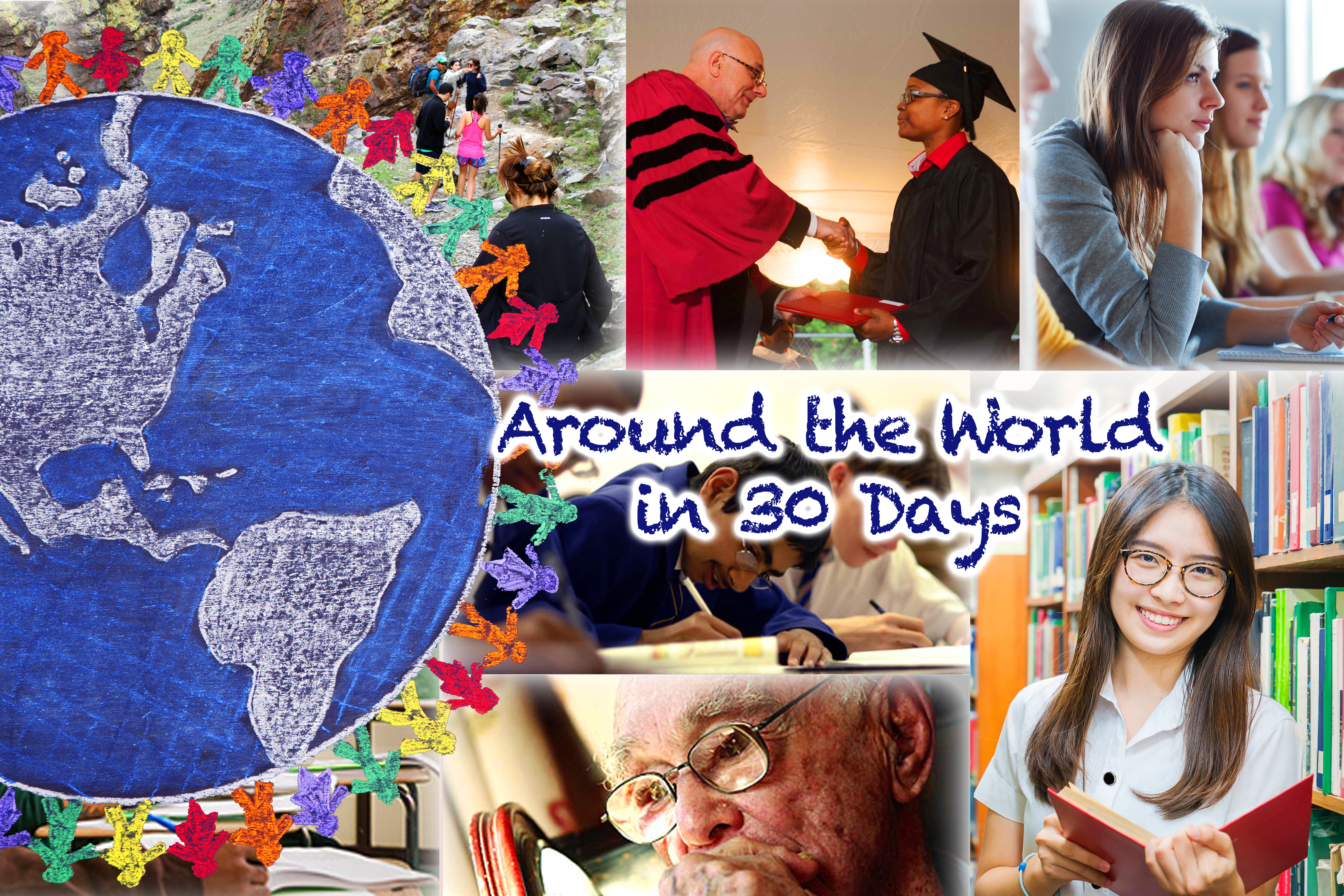



Πρόσφατα σχόλια